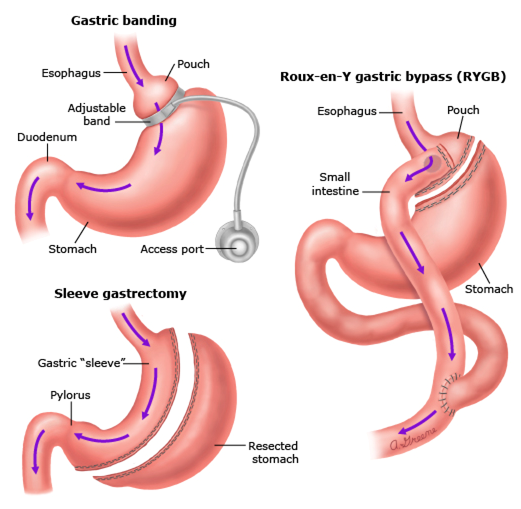Bariatric Surgery and Nutrient Deficiencies
Posted by BioActive Nutrients on 13th Mar 2019

Bariatric Surgery is becoming more and more common. It’s seen as a fix to a host of medical problems stemming from the obesity epidemic in America. Everything from type 2 diabetes, to non-alcohol related fatty liver disease, and cardiovascular disease may be improved by losing weight. Over 228,000 people had some form of bariatric surgery in 2017, up nearly 100% since 2011.
With the increase in weight loss surgeries, there is also an increase in the number of people with vitamin and mineral deficiencies. Those who have weight loss surgery may have nutrient deficiencies because of increased vomiting, decreased food intake, development of food intolerance, a reduction of gastric juices, and BYPASS OF ABSORPTION SURFACE AREAS.
That’s right! Most forms of bariatric surgery involve the removal of part of the stomach or intestines, both of which are important organs for the absorption of nutrients in your body. The stomach plays a role by combining food with digestive enzymes like protease, and lipase, creating chemical reactions that allow the small and large intestine to absorb the vitamins and other nutrients the body needs.

The Duodenum or beginning part of the small intestine works to absorb important minerals iron, calcium, and magnesium. The Jejunum or middle of the small intestine, works mainly to absorb food molecules like sugars, some water soluble vitamins, and amino acids. The Ileum, or last part of the small intestine works to absorb fat soluble vitamins, minerals like potassium, and vitamin B12.
You see, your body was designed to function as a whole. Removing part of the body that is essential for digestion and absorption means you aren’t able to glean all the nutrients you can from your food or supplements. Nutrient deficiencies can actually lead to conditions similar to why people have bariatric surgery in the first place!
For example, a deficiency of magnesium, calcium and vitamin D3 may contribute to type II diabetes, osteoporosis, and cardiovascular disease. Iron deficiency can lead to your body feeling tired and may leave you short of breath, since iron is used to help bind oxygen molecules to red blood cells. B vitamin deficiency may lead to anemia and neuropsychiatric complications! The list goes on and on.
I’m not saying that all bariatric surgeries are bad and that people shouldn’t have them, but it’s important to understand the risks of removing part of a system that helps your body absorb nutrients. A healthy diet, like the Phase I diet and good quality supplements, may help you manage weight loss in a healthy way, that doesn’t put you at risk for nutrient deficiencies or added health risks down the road!
https://www.ncbi.nlm.nih.gov/pmc/articles/PMC35717...
https://www.uspharmacist.com/article/implications...
https://www.ncbi.nlm.nih.gov/pmc/articles/PMC35717...
https://experiencelife.com/article/all-about-abso...
https://www.ncbi.nlm.nih.gov/pmc/articles/PMC35717...
https://www.healthpages.org/anatomy-function/anat...

